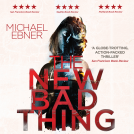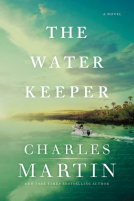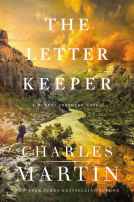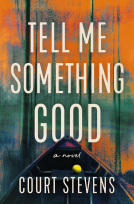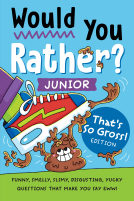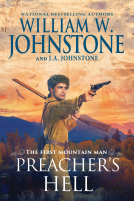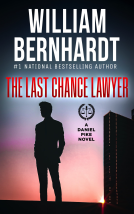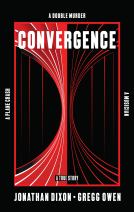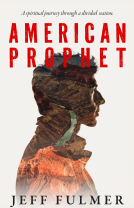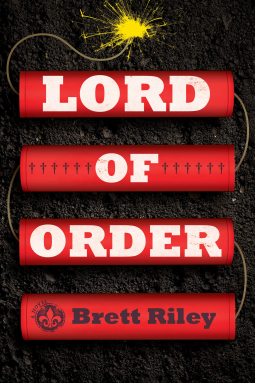
Lord of Order
A Novel
by Brett Riley
This title was previously available on NetGalley and is now archived.
Send NetGalley books directly to your Kindle or Kindle app
1
To read on a Kindle or Kindle app, please add kindle@netgalley.com as an approved email address to receive files in your Amazon account. Click here for step-by-step instructions.
2
Also find your Kindle email address within your Amazon account, and enter it here.
Pub Date Apr 06 2021 | Archive Date May 04 2022
Talking about this book? Use #LordofOrder #NetGalley. More hashtag tips!
Description
Long after the destruction of all electronic technology, the Bright Crusade rules the world as a fundamentalist Christian theocracy. Gabriel Troy is Lord of Order for the New Orleans Principality. For years, he and his deputies have fought to keep their city safe from the attacks of the Crusade’s relentless enemies, the Troublers—heretical guerillas who reject the Crusade’s rule and the church’s strict doctrines. As their crowning achievement, Troy’s forces capture the Troublers’ local leader. The city has never been more secure.
Alarming intelligence leaks from Washington: Supreme Crusader Matthew Rook plans to enact a Purge—the mass annihilation of everyone deemed a threat to the Crusade. Rook orders his forces to round up all but the blindly loyal and march them to New Orleans. Once the prisoners have been chained inside, the Crusaders will wall off the city and destroy the levees. The resulting deluge, reenacting the Biblical deluge of Noah’s time and the city’s devastation during Hurricane Katrina, will kill everyone inside.
Forced to choose between the Crusade and the city he has sworn to protect, Troy and five other conflicted conspirators gird for battle, fully aware that the looming apocalypse will demand horrific choices, test their faith, and require them to join forces with their sworn enemies.
A Note From the Publisher
Brett Riley is the award-winning author of COMANCHE: A Novel
Advance Praise
The past is future in this sweaty, swampy, gun-slinging first cousin to dystopian classics like The Handmaid’s Tale and Fahrenheit 451. Lord of Order crackles. Grab your gear, double down on the ammo, Brett Riley’s dystopian action thriller will have you reaching for a whisky and your six-shooter.”—Stephen Scott Whitaker, co-editor of The Broadkill Review, and member of the National Book Critics Circle.
Brett Riley writes hard core action that should keep readers turning his pages, his literary point the hypocrisy and perfidy of extremist fundamentalisms that trample all freedom and humanity.”—Douglas Unger, author of Leaving the Land, and Voices from Silence
From reviews from "Comanche: A Novel"
“Debut novelist Riley tells a quite deliciously twisted tale. The novel is a lot of fun, with a very entertaining story and a great cast of characters.”— David Pitt, Booklist.
“One of the best meldings of the traditional detective novels and the supernatural that I’ve read in recent history."— Kristopher McClanahan, Tabletops and Tentacles
"COMANCHE is a rollicking ride. Fans of Joe Lansdale and James Lee Burke, Brett Riley is the author you didn’t know you loved.” —Tod Goldberg, author of "Gangsterland"
Available Editions
| EDITION | Other Format |
| ISBN | 9781945501418 |
| PRICE | $27.00 (USD) |
Average rating from 14 members
Featured Reviews
This is a chilling dystopian novel the setting of which bears certain similarities to Margaret Atwood’s comparably chilling Gilead-universe in <em>The Handmaid’s Tale</em> and its sequel <i>The Testaments</i>. Somewhere in the past a powerful, self-proclaimed prophet, the ultra-Protestant Jonas Strickland, has succeeded in haranguing the masses in the USA to elect him president of the nation. As soon as he has accessed power, he launches the so-called Purge, which consists in worldwide bioweapon strikes that wipe out most of the population. Only his loyalest followers, the Bright Crusaders, are allowed to survive in secretly built shelters. At the undefined time of the novel (one guesses several generations later), they have rebuilt certain cities and transformed them into semi-autonomous Principalities, where they dwell now without electricity, their rustic living conditions reminding of the eighteenth century. Each Principality is ruled by a Lord of Order and a group of designated deputies (designation by one’s predecessor having become the only means of accession to any significant post by then).
The plot is set in New Orleans and evolves around the city’s Lord, Gabriel Troy. At the beginning he and his posse round up a bunch of heretical resistance fighters called Troublers—apparently, the Purge hasn’t been that efficient. They kill most of them and drag their leader Stransky to the town prison. During her first interrogation, she informs them of the cruel plans the Washington-based current Supreme Crusader Matthew Rook has in mind. He aims to launch a second Purge supposed to eradicate Troublers and lukewarm followers alike, using the few remaining bioweapons on certain sites. But New Orleans is meant to become first a vast open-air prison for the heretics, then a huge graveyard because once everyone is imprisoned within quickly erected new walls, the city’s dams will be destroyed, drowning everybody in the process. Doubtful at first, Troy has to accept Stransky has told him the truth when the Supreme Crusader’s emissaries arrive in town in order to implement those orders. He needs to decide whether he will follow his upbringing and hitherto firm beliefs or try to save the people living in his city, and he needs to decide quickly…
A dystopian novel is all about believable and gripping world-building, and I’ve always felt a plot gets more compelling if it’s based upon certain elements of which we can already find traces and hints in the world that surrounds us. Orwell’s <i>1984</i>, for instance, will never get old because of that reason—the temptation of many political elites to control the populations they govern will never cease to exist, and where there is power, you will always find lies and alternative truths sold as reality (maybe Orwell’s Newspeak has even never been as topical as today). If the often authoritarian, tyrannical world the author invents is thus established as a likely place with likely conditions, if the characters fit in seamlessly, and if the action simply derives from implied circumstances, there is almost no need to add much in terms of plot in order to ensure a narrative that will draw in the reader. That’s what Atwood has achieved with her almost prototypical novels mentioned above; that’s what Brett Riley has achieved in this novel as well. Apart from a nigh pathological blindness to social questions, a poor education system, and the visceral suspicion of anything even remotely “leftist”, religion is probably one of the deepest-rooted and most important problems of US-American society. Rare are the countries where God appears on the money and where in every other public speech God is mentioned at least once. For most Americans this is their unquestioned normality, that strikes most foreigners as rather extreme. If you take this situation as your starting point and only exacerbate it a little, you’ll be sure to have the perfect setting for a perfect dystopian book.
So, the plausible basis for Riley’s Principalities is there (as it was for Atwood’s Gilead). The author introduces a cast of likeable characters even agnostics such as I can relate to because, beyond the blind belief they show in the beginning, they are three-dimensional and human. They all evolve throughout the book; they have feelings, they doubt their faith, their religion, even their decisions and actions; they are in turns brave and determined and then unsure and weak. They all finally decide to think and decide for themselves what’s best for their community, shaking off the blind obedience of their self-proclaimed cult-leader without losing their religion. The author seems to be quite religious himself if I interpret the acknowledgements correctly (albeit not in a bigoted, intolerant way, otherwise he wouldn’t have written such a novel in the first place). This shows in the book because even the so-called heretics I thought might be agnostics or atheists believed in God, and despite the severe trials and tribulations several characters were exposed to, they never ever lost faith in God or would even consider the possibility of such an entity not existing.
And yet, although such an all-encompassing religious subtext would normally have cooled any enthusiasm I could have had for a read, I wasn’t put off in this case. I guess that’s because the writing, very to-the-point, without frills or unnecessary ornaments, is really good—tight, straight, charismatic, atmospheric, drawing me in and dragging me along in a relentless pace through the whole book. I guess I glimpsed the possibility of a sequel in the last chapter; if yes, I’m sincerely looking forward to it; if the author has not planned to write one, I hope my review might be an incentive for him to reconsider.
 Richard B, Reviewer
Richard B, Reviewer
<i>Lord of Order</i> is a dystopian novel about a religious war taking place after the destruction of air and land vehicles, and electricity. Gabriel Troy, the current Lord of Order, is a strong leader with a loyal following and a fierce drive to protect his city, New Orleans. <i>Lord of Order</i> is the second novel by screenplay and short-story writer Brett Riley.
Troy and his officers in the Bright Crusade capture the leader of the heathen Troublers. She tells them that she has heard that Crusade leaders are going to use New Orleans as a prison for captive Troublers from across the nation. Shortly afterwards, a scout arrives to tell them to prepare for the arrival of a Crusade elder who will give them details on a new assignment. What they hear from the elder tells them that captured leader has been telling them the truth and they now need to prepare or rebel.
Riley does a brilliant job of describing each character. Each one has a specific role to play and struggles with how they will cope with the changes that are occurring around them. All of the characters are compelling and they elevate the plot line.
The beginning of the book is confusing because Riley choses to let the story unfold, slowly revealing why the characters are at war. A little history at the beginning would help the reader become emerged in the storyline. However, once one reaches a certain level of understanding, the story moves rapidly and is captivating.
Two aspects bothered me. The violence is very graphic and a little too much for me. As well, it seems to me that the language is inconsistent. One moment the language seems almost illiterate and then the next conversation appears to be quite elegant.
I recommend this book to all people who love a good fast paced story about armed conflict. Be prepared graphic descriptions of violence and torture. I give it a 3 on 5 because I was occasionally interested but uncomfortable. I want to thank NetGalley and Imbrifex for providing me with a digital copy of this novel in exchange for an honest review.
 Account D, Reviewer
Account D, Reviewer
this was a really interesting concept and I really enjoyed reading this book. The characters were great and I really enjoyed going through this.
 Lee D, Reviewer
Lee D, Reviewer
"Christ said to suffer the little children and let em come unto him. I don’t think he meant to kill em to get em there faster”. Darkly humorous, laconic asides like this guide readers of Lord of Order through a visceral, blood-soaked landscape of violence and redemption that pushes the boundaries of definition.
Lord of Order is a thrillingly violent, dark and brutal story of conspiracy and rebellion. Set in a post-apocalyptic dystopian North America of the future, it is part spaghetti western and part thriller, mixed and painted onto a religiously-themed canvas and influenced by current events; imagine The Magnificent Seven meets Inglourious Basterds, but with more gore and shades of The Handmaid’s Tale added for good measure.
Lord of Order is viscerally, pungently, well-written. In parts it is almost cinematic. The physicality of violence is described in brutally frank terms. As one character notes, “it was much easier to glorify death if you had not tromped through the bone and gristle of it most of your life”. This is not a book for the squeamish.
It is also morally challenging. On one level it is a simple tale of good versus evil, but a closer reading reveals a richer, complex and more satisfying experience. Here all the characters are painted in shades of grey and this is a story about navigating the thin line between right and wrong, where good guys do bad things for the right reasons and where bad guys believe they are doing good. Lord of Order searches for a greater good and moral redemption in the most heinous of acts. In this world the horses are the only innocents and a young orphan girl is the stoniest of stone-cold killers.
Lord of Order is not a perfect book. But it is a damn good read. The author has a couple of eccentricities that are frankly irritating at first. The “g” is dropped from many verbs, presumably to impart more of a cowboy vibe, and speech is rendered without quotation so at first it is hard to know who is speaking, or to tell if it is speech and not an internal dialogue we're being presented with. But you get used to them and I admit, they work! Individual violence is powerfully portrayed but panoramic battle scenes less so, which contributes to the last part of the book feeling heavier going than the rest, as well as being an obvious stall for possible sequels.
Quibbles. Lord of Order is good solid grimdark with a western feel. I'll be searching out the rest of the author's catalogue and I'll be reading the sequel to this when there is one. I heartily ecommend that you do the same.
This review is an extract from a longer article prepared for Grimdark Magazine.
Not for the faint hearted. This story is full of violence, scenes of torture, and a large battle. The characters are very strong. You never find out much about them or their backstories, but they are all individuals and combined make an awesome team with a sense of family.
The graphic imagery got quite gruesome in places. Some of it turned my stomach. But even with all the horror and despair, it still managed to paint a beautiful picture of new Orleans. I found there was quite a lot of description of smells, good and bad, which helped build a picture as well.
I really enjoyed this and think it will be one I'll remember for quite a while. The fight at the end was amazing and exhausting. I zoomed through the last 40% of the book. I just couldn't put it down.
Lord of order is a great book, I liked it, but I didn't enjoye it at all, some parts of the story I just got bored and that's something I don't like when I read a book, so that's something, also, I like the cover of this book and I liked that this book showed us a problematic in the world
 Reviewer 173301
Reviewer 173301
Lord of Order by Brett Riley is a superb and engrossing read which will keep you reading until the end. Well worth the read!
This is a tremendously enjoyable book. I enjoy post-apocalyptic fiction and when I downloaded this I suspected I'd like it but was surprised by just how good it was and how he was able to take some original approaches to a genre that can be pretty hackneyed.
While there are many of the same approaches, character-types, themes you'll find in many books of the genre, there are several aspects that make it rise above those others.
Sometimes books of this type can introduce a myriad of characters and storylines which make it difficult to follow the central threads of the story - I think some authors equate complexity with cleverness and intellectualism. Brett Riley, however, manages to balance complexity with coherence and clarity. He introduces themes and characters at a rate and consistency that keep the story very coherent and while complex enough to hold your interest, it remains focused enough not to confuse. There were a couple of times I thought he'd inexplicably dropped a character or a scenario only to find him later resolving those things in completely believable and reasonable way.
What I also love is his ability to remind the reader of where the world in the novel has come from with subtle and interesting nods to the 'old times' - technology, religion, politics - but without repeated clobbering you over the head with blatant references to all of those things.
The novel clearly and bravely raises fears about what might happen if the the more recent and current trends in American politics and culture towards pandering to religious fundamentalism and dogma were to play out unchecked. The fact that it's set in a very recognizable New Orleans within a very recognizable United States, I think helps to underline how plausible such a future could be if political and religious powers rise and remain unchallenged and unchecked.
Another way that Riley plows his own furrow in the book is that, given the preponderance of Christian religious fundamentalism, he doesn't go all 'The Handmaid's Tale' with the female characters. They're presented as equals in many ways to the male characters and while the grand poobah of the religious state is make, you don't feel like women are throwaway characters or 'breeders.'
The book is clearly written with a series - or at least a sequel - in mind. This normally bothers me, I'm more of a stand-alone, instant gratification kind of reader and sometimes feel like the victim of a grift if I find myself at the end of a novel only to discover I have to wait years and pay again and again to get some kind of closure (while the author desperately figures out how to end it or the reader hopes that it's finished before the author dies!). However, as I progressed in this novel, and it felt more and more like a sequel or series was becoming inevitable, I was delighted. I wanted more of these characters. That said, this book can easily be read as a stand-alone. I appreciated that.
Finally, 'Lord of Order' - what a title, how could you not love a book with a title like that!?
Readers who liked this book also liked:
L.M Montgomery
Children's Fiction, Comics, Graphic Novels, Manga, Teens & YA
Jeff Fulmer
General Fiction (Adult), Politics & Current Affairs, Religion & Spirituality






